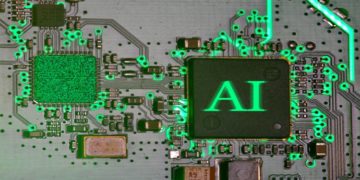Since the digital transformation poker moved out of dark smokey spaces to become a digital virtual fun played in millions of games daily. An incredible data engineering obstacle stands behind smooth online gaming because it requires complete collection and storage of everything from poker hands. The immense operation creates special database expansion issues that modern technology is forced to confront.
The Staggering Scale of Poker Data
Playing online poker generates data at a breathtaking pace. Poker websites maintain hundreds of thousands of simultaneous users in peak periods who conduct more than 100 hand-deals per hour across various game tables. A network with major status handles more than 10 million hands of poker in daily operations. Online poker platforms accumulate billions of data points daily because each hand includes at least dozens of measurable elements which encompass player actions with timing data and financial operations and chat communications.
Experts in developing databases at gaming enterprises refer to this issue as attempting to sip directly from an unstoppable water stream. The overload surpasses every technical constraint that traditional database systems could ever manage. The massive growth of online poker forced companies to develop highly advanced methods for handling massive amounts of data which includes tracking poker games dating back several decades.
Structural Challenges in Database Design
The development of optimal designs for poker hand databases proves challenging even though it appears straightforward. A hand consists of more than one database entry while forming a multi-level relational structure connecting multiple records to each other. Multiple rounds of betting take place within each hand structure and they include different quantities of player decision points. Cash game hands maintain a different structure than tournament hands. Multiple related tables emerge when side pots and all-in situations and disconnection handling are added to what seemed like a simple design.
Traditional normalized databases create poorly manageable structures when companies work at large scales. Most platforms now use combination database architectures which include denormalized data components or document-based hand storage although these designs reduce the ability to perform complex queries. The database needs to execute multiple reads and writes simultaneously while maintaining data integrity during extreme hand traffic in peak times.
Time Series Data Management
Poker hand data follows a sequential order with timestamps which distinguishes it as a time-series database that should insert new entries at the end. Special time-series database solutions which utilize temporal boundary-based sharding approaches work inside system platforms to improve operational performance. The system can execute quick range operations which serve the needs of wefcller investigators and analyst professionals who need time access.
Yet time introduces additional complexities. System databases present quick historical data access but recent information needs immediate as well as time-limited access. Proper evaluation of storage resource arrangement is needed before processing petabyte-scale datasets since different storage tiers hold vital importance.
Real-Time Processing Requirements
Gaming regulations throughout multiple jurisdictions enforce an immediate requirement to detect suspicious activities which dictates that real-time processing serves as an absolute necessity. The gameplay requires that users get instant access to their recorded hand history details. The demanding needs put pressure on the work equilibrium between transactional applications and analytical requirements.
A typical data processing architecture consists of multiple stages where transactional systems record original event data while stream processing engines generate immediate statistics which data warehouses accept aggregated results. Large-scale implementation of this architectural design demands advanced orchestration systems and comprehensive monitoring capabilities.
Storage vs. Accessibility Trade-offs
The increasing number of hand records in databases creates challenges regarding data storage retention methods and data compression techniques. Security analysis benefits highly from complete action-by-action records which demand massive storage space. The recording and storage of table activities through video requires multiple times the amount of storage capacity.
Organizations which lead the market use compression systems that protect crucial hand data while deleting unimportant elements from older records. The CPU handles decompression processes more intensively as poker data compression algorithms use specialized optimization for efficient storage management.
Analytics and Machine Learning Implications
The huge database system containing hand information functions as an essential base for developing advanced analytical capabilities. The information in these large databases becomes a valuable resource that operators and professional players use to identify patterns along with enhancing game design and strategic decision processes. The database system needs to execute sophisticated aggregation operations across numerous billions of stored records.
Machine learning models that consume these large datasets need optimized data processing systems to obtain features from hand history records at enormous volumes. The required database systems operate differently for analysis tasks while also needing synchronization with transactional requirements.
In the End
Designing systems to track the complete record of poker hands illustrates fundamental changes to infrastructure requirements which scale up into complex technical difficulties. The solutions created in this domain which includes complex sharding methods and tailored compression systems serve purposes that go beyond gaming to address wider big data domains.
The constant surge of online poker hands requires database architects to compete for developing increasingly optimal data storage systems and processing methods. The technical advancements perpetually ensure that increasing quantities of data do not impact the ability to process cards and store online poker records for historical purposes.
David Prior
David Prior is the editor of Today News, responsible for the overall editorial strategy. He is an NCTJ-qualified journalist with over 20 years’ experience, and is also editor of the award-winning hyperlocal news title Altrincham Today. His LinkedIn profile is here.













































































